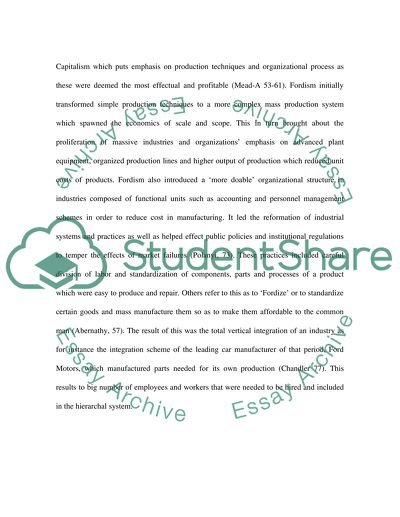Cite this document
(“Fordism and the US Economy Essay Example | Topics and Well Written Essays - 2500 words”, n.d.)
Fordism and the US Economy Essay Example | Topics and Well Written Essays - 2500 words. Retrieved from https://studentshare.org/miscellaneous/1527439-fordism-and-the-us-economy
Fordism and the US Economy Essay Example | Topics and Well Written Essays - 2500 words. Retrieved from https://studentshare.org/miscellaneous/1527439-fordism-and-the-us-economy
(Fordism and the US Economy Essay Example | Topics and Well Written Essays - 2500 Words)
Fordism and the US Economy Essay Example | Topics and Well Written Essays - 2500 Words. https://studentshare.org/miscellaneous/1527439-fordism-and-the-us-economy.
Fordism and the US Economy Essay Example | Topics and Well Written Essays - 2500 Words. https://studentshare.org/miscellaneous/1527439-fordism-and-the-us-economy.
“Fordism and the US Economy Essay Example | Topics and Well Written Essays - 2500 Words”, n.d. https://studentshare.org/miscellaneous/1527439-fordism-and-the-us-economy.


